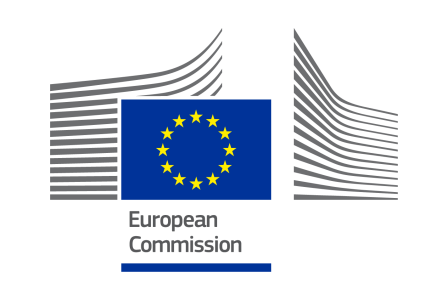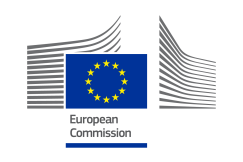Policies
01 April 2025
Competitiveness Compass
Policies
01 April 2025
1. Healthy, balanced and sustainable diets for all European consumers
2. Prevention and reduction of food loss and waste
3. A climate - neutral food chain in Europe by 2050
+4 more
Login / create an account to be able to react
-
40

In January 2025, the Commission presented the Competitiveness Compass, a new roadmap to restore Europe’s dynamism and boost our economic growth. The Compass builds on the analysis of Mario Draghi’s report on the future of European competitiveness and provides a strategic framework to drive the Commission' work during the 2024-2029 mandate.
Editorial team
European Commission - DG GROW
Topics
EU-27
EU Institutions
-
CoC aspirational objectives
-
-
1. Healthy, balanced and sustainable diets for all European consumers
-
2. Prevention and reduction of food loss and waste
-
3. A climate - neutral food chain in Europe by 2050
-
4. An optimised circular and resource-efficient food chain in Europe
-
5. Sustained, inclusive and sustainable economic growth, employment and decent work for all
-
6. Sustainable value creation in the European food supply chain through partnership
-
7. Sustainable sourcing in food supply chains
-
Share
The Draghi report originally identified three imperatives for the EU to boost its competitiveness:
- Closing the innovation gap
- A joint strategy for decarbonisation and competitiveness
- Increasing security and reducing excessive dependencies
The Competitiveness Compass sets out an approach and measures to translate these imperatives into reality.
Closing the innovation gap
The Compass spells out how the European Union will boost innovation by:
- creating a friendly environment for young companies to start and expand, with a dedicated EU Start-up and Scale-up Strategy
- helping big companies adopt new technologies such as artificial intelligence (AI) and robotics, thanks to an “Apply AI” initiative
- making it easier for companies to operate across the EU by simplifying rules and laws, with a proposal for a 28th legal regime that will guarantee one set of rules across the EU
- supporting the development of new technologies, with action plans for advanced materials, quantum, biotech, robotics and space technologies
A joint roadmap for decarbonisation and competitiveness
The Compass sets out how we can facilitate access to affordable energy by:
- putting forward the Clean Industrial Deal, to help reduce carbon emissions, especially for energy intensive companies, and facilitate their transition to low carbon technologies
- presenting tailor-made action plans for energy intensive sectors, such as steel, metals, and chemicals, which are the most vulnerable at this phase of the transition
- developing an Affordable Energy Action Plan to help bring down energy prices and costs
Reducing dependencies and increasing resilience and security
The EU already has the largest and fastest growing network of trade agreements in the world, covering 76 countries.
The Compass identifies how we can further diversify and strengthen our supply chains by:
- developing a new range of Clean Trade and Investment Partnerships to help secure supply of raw materials, clean energy, sustainable transport fuels, and clean tech from across the world
- reviewing the Public Procurement rules to allow for the introduction of a European preference in public procurement for critical sectors and technologies
Five horizontal enablers for competitiveness
To complement these three pillars, the Competitiveness Compass introduces five horizontal enablers to increase our competitiveness across all sectors:
- Simplification
- Lowering barriers to the Single Market
- Financing competitiveness
- Promoting skills and quality jobs
- Better coordination of policies at EU and national level
The Compass already recognises the Vision on agriculture and food the strategic document for the agri-food sector in the mandate 2024-2029.
Related legislation:
Communication COM/2025/30 A Competitiveness Compass for the EU
Comments (0)
See also
Chemicals Strategy for Sustainability
- Categories
- 2. Prevention and reduction of food loss and waste 3. A climate - neutral food chain in Europe by 2050 4. An optimised circular and resource-efficient food chain in Europe +3 more
Digital Decade Policy programme 2030
- Categories
- 2. Prevention and reduction of food loss and waste 3. A climate - neutral food chain in Europe by 2050 4. An optimised circular and resource-efficient food chain in Europe +3 more
EU Social Dialogue
- Categories
- 2. Prevention and reduction of food loss and waste 3. A climate - neutral food chain in Europe by 2050 4. An optimised circular and resource-efficient food chain in Europe +3 more




